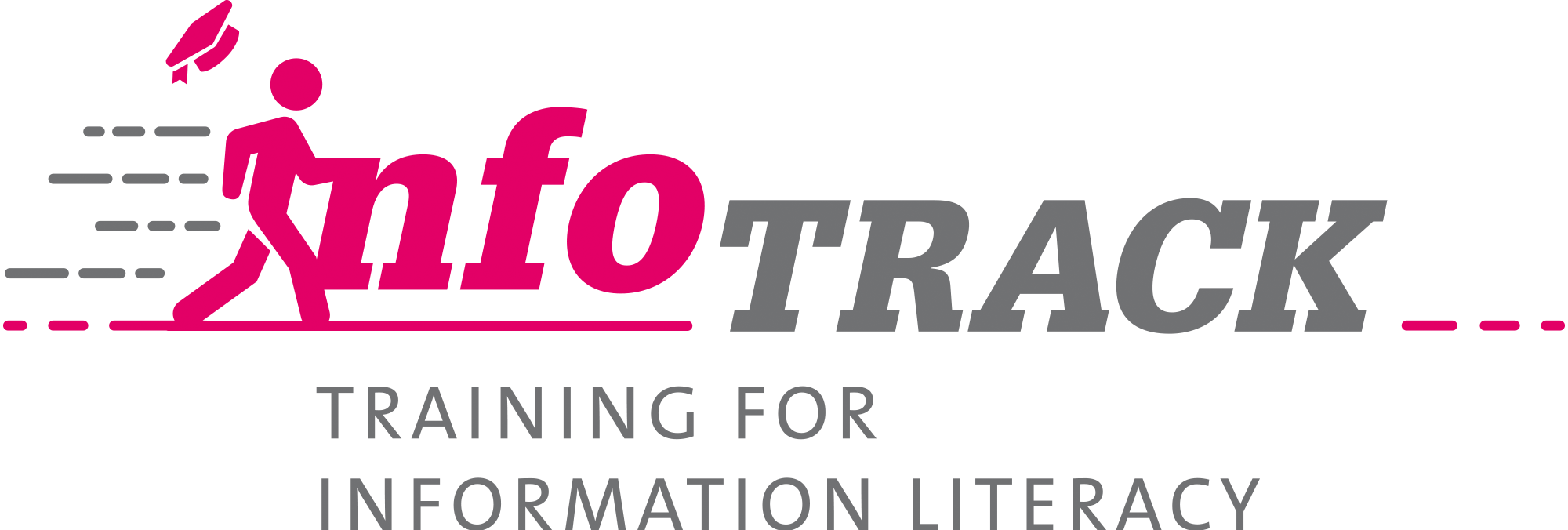Purpose of this training
"Information literacy ranks among the most important key qualifications for success in study and profession in an information society."
Source : Project "Information Literacy at Swiss Universities". (2011). Swiss Information Literacy Standards. Zürich. https://www.informationskompetenz.ch/en/swiss-standards
What is InfoTrack?
InfoTrack is the online training platform in information literacy of the University of Geneva Library (searching for and selecting documents, sharing and using information ethically). It is aimed primarily at Bachelor’s students in all disciplines.
What’s innovative about this training is the choice of video as the teaching medium, and that it is structured in independent modules that give you great freedom and flexibility. This training is built as a series of 28 video episodes that illustrate student experiences related to information literacy skills needed to successfully complete work required for your university studies.
Each video is a challenge, because in only 3 minutes it aims to present, and then solve, a common problem faced by students. The goal of these humorous video scenarios is to help students ‘keep calm’ and solve problems they encounter during their academic work.
The modules are divided into five thematic groups matching key steps in the process of completing an academic assignment: Finding Sources, Making a Research Plan, Evaluating Sources, Writing and Communicating, and Avoiding Plagiarism.
What is information literacy?
According to Swiss Information Literacy Standards, students who have mastered these skills will be able to:
- define the type and scope of information they need;
- efficiently identify the information they are looking for;
- critically evaluate the information they find;
- manage and share the information;
- make use of the information for a specific purpose;
- act as a responsible member of the information society.
Where?
InfoTrack was developed on Concrete5, the Content Management System (CMS) used for all UNIGE websites. The modules are available on the platform, but may also be viewed on MediaServer or on the dedicated YouTube channel.
When?
The platform can be accessed by anyone at any time on any device (computer, tablet, or smartphone) with a fast internet connection.
How?
Completing a module (watching the video, reading the “Key Points”, and taking the quiz) takes around 10 minutes. It takes 4,5 hours to complete all 28 modules.
For students
InfoTrack can be used independently or as a teaching tool for a course. Each module includes a 3-minute educational video, a summary of the lesson’s key points, a self-assessment quiz, and extra resources for further study.
You can find videos that correspond to your particular needs (for example, how to formulate a research question, how to evaluate the quality of a document, or how to create a bibliography) through keyword searches. This allows you to create your own training program by selecting only the modules you need.
If you would like to complete the entire training program (28 modules currently available), we suggest working by theme in whatever order you prefer.
If a personalized training program sounds more like your style, we recommend taking the Level Test. After your results are processed, modules will be suggested for you.
For instructors
You can organize a lesson on research methodology using InfoTrack as a teaching resource (video lessons + assessment by quiz). We offer three different ways to do this:
- Self-training: online training preceded by an introductory presentation in class
- Hybrid training: students watch modules before or between classes ahead of the lesson
- Face-to-face training: using modules in class to introduce or cover a theme
The librarians at the University of Geneva use InfoTrack in information literacy training sessions.
If you are an instructor and would like to incorporate information literacy training into your course, please contact the University of Geneva librarians. The training program will be adapted to student’ s needs in your discipline.
Publications about InfoTrack
Mellifluo L., Vieux A. InfoTrack, ou comment utiliser l’humour pour dynamiser les formations aux compétences informationnelles. Tribune Compétences Informationnelles, 6 décembre 2016. https://tribuneci.wordpress.com/2016/12/06/infotrack-ou-comment-utiliser-lhumour-pour-dynamiser-les-formations-aux-competences-informationnelles
Vieux A., Mellifluo L., Ronchi A. InfoTrack, une nouvelle formation en ligne aux compétences informationnelles pour la Bibliothèque de l’Université de Genève : retour d’expérience. Ressi, 31 décembre 2016. http://www.ressi.ch/num17/article_126
Pio E., Vieux A. La Bibliothèque et la Faculté de Traduction et d’Interprétation de l’Université de Genève s’allient pour traduire InfoTrack. Tribune Compétences Informationnelles , 15 mars 2018. https://tribuneci.wordpress.com/2018/03/15/la-bibliotheque-et-la-faculte-de-traduction-et-dinterpretation-de-luniversite-de-geneve-sallient-pour-traduire-infotrack
"InfoTrack" adopte la langue de Shakespeare. Journal de l'UNIGE, n°144, 5-26 avril 2018. https://www.unige.ch/lejournal/numeros/journal144/article-10/

